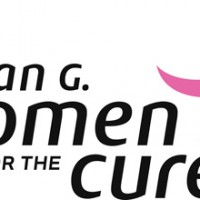Komen research continues focus on environment
- Details
- Published on Friday, 02 August 2013 14:41
- Written by Paul Gordon
With a focus on how the environment may be a factor in breast cancer, Susan G. Komen for the Cure announced it will fund $42 million in research in its 2013 research portfolio.
From that total $4.5 million in funding will research the environment issue, the organization said in a news release.
"The new environmental grants will build on research that Komen has already funded to more fully understand the role of toxins and other environmental factors that may contribute to breast cancer," the release said.
"These environmental studies will add to our understanding of how breast cancer develops," said Chandini Portteus, Komen's chief mission officer. "At the same time, Komen will continue to fund research along the entire cancer spectrum – from prevention, to better screening, more personalized treatments for metastatic disease, and ending disparities in outcomes for women of color and those without adequate access to healthcare."
Komen's total research portfolio now has topped $790 million, the largest breast cancer research investment of any nonprofit other than the U.S. government.
In Illinois Komen has invested more than $16.5 million in research since the organization began in 1982, said Linda Maricle, executive director of the Susan G. Komen Memorial Affiliate in Peoria. Komen affiliates in Illinois have also funded more than $25.6 million to community health programs that provide screenings, financial aid and social and emotional support to women and families throughout the state – nearly $10 million by Komen Memorial alone, she added.
"Up to 75 percent of the net funds we raise locally stay here to support our local community health and education programs. The other 25 percent helps fund Komen's national research programs," Maricle said. "We're thankful for our supporters who help us serve our communities here at home, while supporting our education and research institutions."
Of the 2013 grant award seven were for $1 million each and several others were for amount just short of that.
The 2013 Illinois research grants will focus on cancer genomics and improved diagnostic guidelines, the organization said. The grants recipients include:
$225,0000 to Olufunmilayo Olopade, M.D., F.A.C.P, at the University of Chicago to continue her groundbreaking work on breast cancer in women of African descent. Olopade will use the funds to expand the Nigerian Breast Cancer study into the role of genetic and non-genetic factors that make women of African descent more likely to develop aggressive forms of breast cancer and at a younger age.
$30,000 to the Society of Surgical Oncology to develop guidelines on how much normal tissue surrounding the tumor should be removed during a lumpectomy to achieve "clear margins," to be sure that the cancerous cells are removed. Development of these guidelines will help reduce variability in treatment and lead to fewer women having too much or too little normal tissue removed during lumpectomies, thereby reducing the need for additional procedures such as re-excisions or elevated radiation boost doses.
The five environmental grants awarded for 2013 include separate studies on the impact of radiation exposure on breast cancer development during screening and treatment; pollutants in areas where cancer rates are disproportionately high; the impact of air pollution on breast cancer development, and the role of synthetic chemicals called phthalates.
These grants include grants to Brigham and Women's Medical Center in Boston; Duke University in Durham, N.C.; Emory University in Atlanta; and the University of Southern California in Los Angeles. "In each of these grants, we are attempting to move beyond theories to establish a solid base of scientific evidence on the role of environmental exposures to breast cancer development," said Portteus.
Komen has already invested nearly $14 million into 38 research grants studying environmental and lifestyle factors that may affect breast cancer risk, such as chemicals, diet, weight, exercise and alcohol use.
"Our research and community health outreach would not be possible without the generosity of our partners and donors in communities, and we are so grateful for those who understand and support this vital work for all people facing breast cancer," Portteus said.
A complete list and description of Komen's 2013 grants, including the new peer-reviewed Illinois grants, can be viewed at www.komen.org/2013grants.


















































